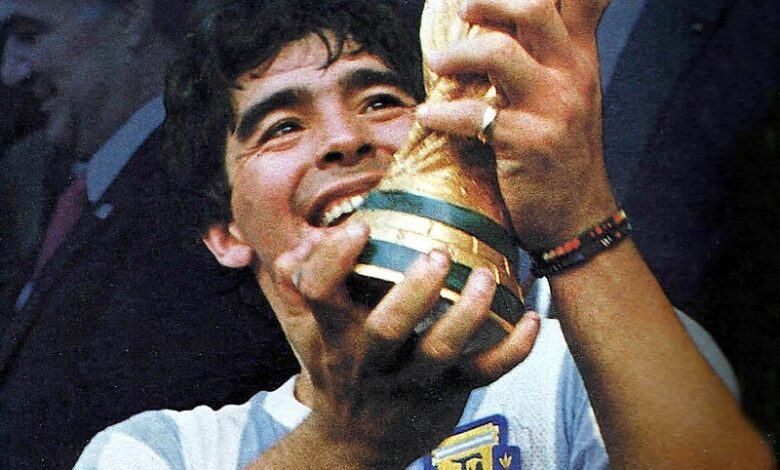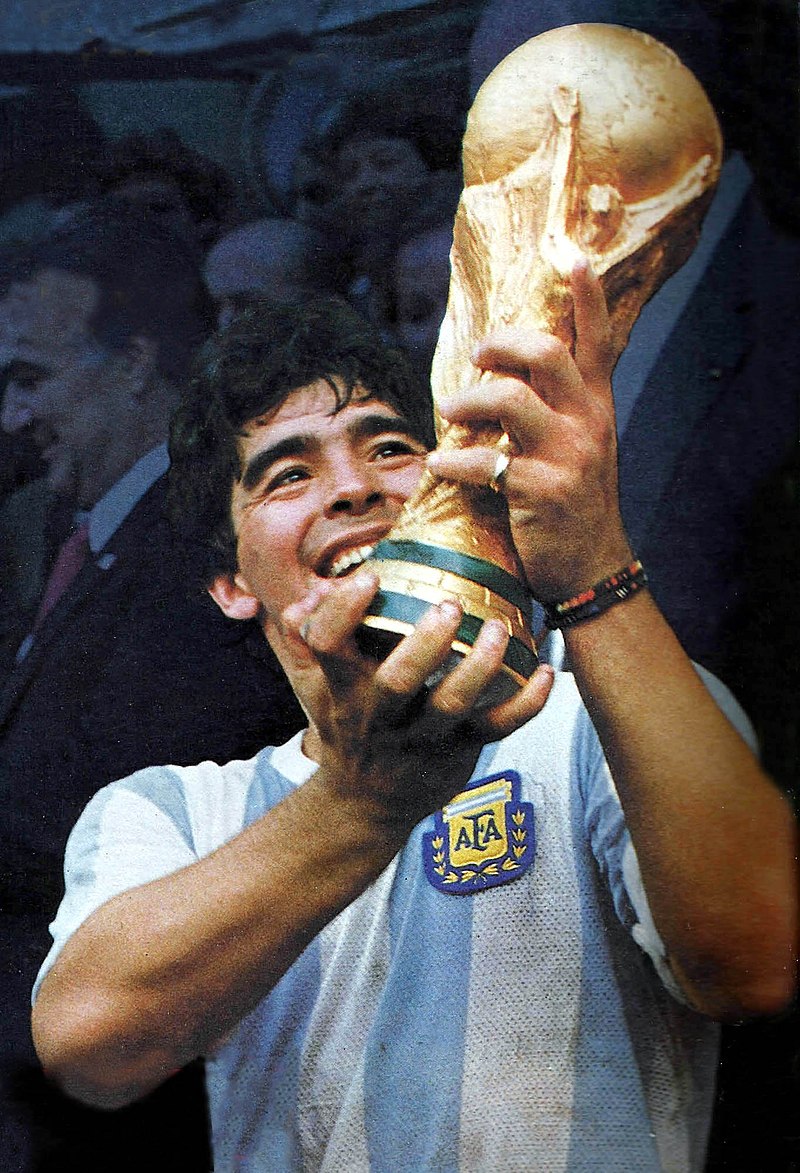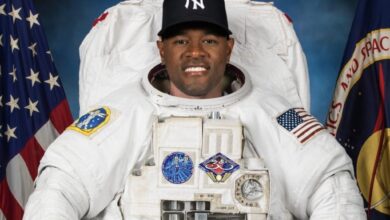
Then
The legend of Diego Maradona is one that will remain in the annals of football history for eternity. The Argentine footballing genius was the epitome of skill and passion on the pitch, and his influence is still felt to this day. He is widely regarded as one of the greatest footballers of all time, and his career was filled with remarkable accomplishments. From winning the FIFA World Cup with Argentina in 1986, to inspiring Napoli to two Serie A titles in 1987 and 1990, Diego Maradona has left an indelible mark on the world of football.
Early Life and Career
The legend of Diego Maradona began in Buenos Aires, Argentina, where he was born on October 30th, 1960. From an early age, Diego’s talent for football was clear, and he began playing with Los Cebollitas, a youth team based in his hometown, at the age of 8. As a teenager, he made his professional debut with Argentinos Juniors in 1976 at just 15 years old. He quickly gained recognition for his skills as a player, and was part of the 1979 Argentine Youth Team that won the World Championship.
In 1982, Maradona moved to Europe and signed with Barcelona, becoming the most expensive footballer in history at the time. While at Barcelona, he won the Spanish Cup twice and earned individual honors such as the Pichichi Trophy for being the top scorer in the Spanish League. In 1984, Maradona transferred to SSC Napoli, helping the team to two Serie A titles and one UEFA Cup victory. Throughout his career, he continued to earn international recognition for his skillful play and impressive individual awards.
Maradona also enjoyed an impressive international career with the Argentine National Team. He made his first appearance for them in 1977 and went on to become their captain in 1986. During this time, Maradona led Argentina to success in several tournaments, including the 1986 FIFA World Cup. With him at the helm, Argentina won their second ever world cup title, propelling Maradona to legendary status.
The Hand of God
Diego Maradona is widely known for the legendary “Hand of God” goal he scored during the 1986 World Cup. The goal was scored in the quarter-final match between England and Argentina, which Maradona’s team eventually won 2–1. The goal is widely regarded as one of the most controversial in football history. In the 51st minute, a long pass from Argentine captain Jorge Valdano was deflected off England goalkeeper Peter Shilton. Maradona jumped up with Shilton and managed to tap the ball into the net using his hand. Referee Ali Bin Nasser did not spot the offense, allowing the goal to stand.
The “Hand of God” goal has become an integral part of Diego Maradona’s legacy. The controversy surrounding the incident has only helped to further solidify his place in history as one of the greatest players ever to play the game. It serves as a reminder of just how talented and determined Maradona was on the pitch, and the lengths he would go to in order to help Argentina secure victory. The legend of Diego Maradona will forever be remembered thanks to this iconic moment.
The 1986 World Cup
The 1986 FIFA World Cup, held in Mexico, was undoubtedly Diego Maradona’s most memorable moment in football. At the age of 25, Maradona was already at the peak of his career, and he led Argentina to their second ever World Cup title.
The tournament began with Maradona scoring two goals in the opening game against South Korea. He then continued his form as he went on to score another goal against Italy, setting up a semi-final clash against England. The match is now known as ‘The Hand of God’ incident, where Maradona scored what is seen as one of the most controversial goals in football history. It saw him famously jump higher than the English goalkeeper Peter Shilton to head the ball into the net, with his hand clearly visible. Despite being awarded the goal, Maradona still insists it was an honest mistake and that he did not deliberately handle the ball.
The match ended with a 2-1 victory for Argentina and Maradona followed it up with an impressive performance in the final against West Germany, winning 3-2. It was Maradona who scored the winning goal in extra time, earning him the title of ‘Man of the Match’. He finished the tournament as the joint top scorer with five goals, adding two assists and winning a share of the Golden Ball award.
Maradona’s performances during the tournament made him an Argentine hero and cemented his status as a footballing legend. It was undoubtedly one of the greatest moments in football history and will live long in the memory of all fans of the beautiful game.
Later Career and Retirement
After Maradona’s disastrous 1994 World Cup campaign, his club career came to an end when he signed with Boca Juniors in 1995. He was a major part of the team that won the Copa Libertadores in 2000. After leaving the club in 2001, Maradona went on to play for various other clubs throughout Europe and South America.
In 2006, Maradona retired from professional football, but still made occasional appearances for smaller clubs. In 2007, he announced his retirement having been given a job as a coach at the Dubai-based club Al Wasl. Then in 2010, Maradona was chosen as the head coach of Argentina. He lead them to the quarterfinals of the 2010 World Cup. After being replaced by Alejandro Sabella, Maradona left the post in 2011.
Maradona has since gone on to manage several clubs around the world. Including Fujairah in the UAE Pro League and Gimnasia de La Plata in Argentina’s Primera Division. In 2020, Maradona was appointed as chairman of Belgrano de Córdoba.
Maradona remains one of the greatest players ever and is still remembered fondly by many for his incredible performances. His legacy will live on for generations to come.
Death
On November 25th, 2020, Diego Maradona passed away due to a cardiac arrest. He had battled health problems for years prior and had recently undergone brain surgery for a subdural hematoma. The news of his death sent shockwaves across the world. This sparked an outpouring of grief from fans, friends, and family.
Maradona’s body was brought to the Presidential Palace in Argentina and thousands of fans lined up to pay their respects. His coffin was draped in the Argentine flag and his daughters held a memorial service at his home.
The footballing world also paid their respects to one of the greatest players to ever play the game. FIFA and UEFA both released statements honoring Maradona. With FIFA President Gianni Infantino saying “He leaves us but he will never be forgotten”.
The impact Diego Maradona had on the sport of football is unparalleled and his legacy will continue to live forever. He was a player who transcended generations and inspired countless people to pick up a football. His passing marks the end of a great era. He will always remain one of the most beloved sports icons of all time.





